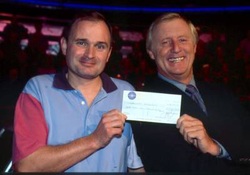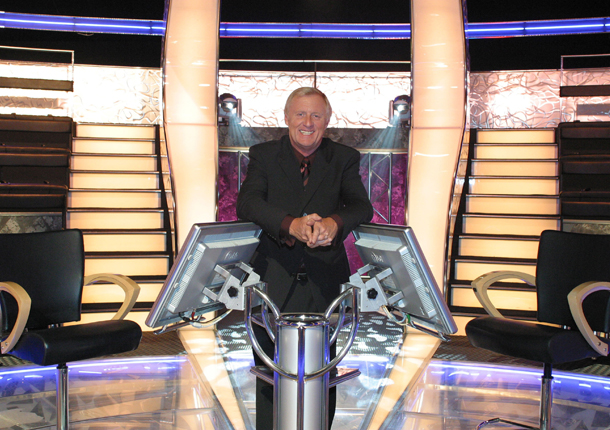One of the (many) films I watched over Christmas was Slumdog Millionaire. Having not seen it for a while, it was like watching it with fresh eyes. I was completely hooked, rooting for Jamal to win the jackpot, and I was reminded exactly why this film won eight Oscars in 2009 (including best film and best director).
So, like many, I was left feeling nostalgic when it was announced this week that ‘Who Wants to be a Millionaire?’ will not return for any more series. This game show, which was the first of its type, is an important part of cultural history. It became a phenomenon that spread across the world, and has now been immortalised (first as the book) in the film Slumdog Millionaire.

After more than 15 years on our screens, Millionaire has earned its place in our hearts. Its format of giving anyone the chance to win £1 million inspired hope and aspiration. For viewers at home, there was always that great feeling of smugness if the answer seemed obvious but the contestant did not have a clue. As the show was exported around the world, it gave rise to many inspirational rags to riches stories like the one on which Slumdog Millionaire is based.
 Ingram with host Chris Tarrant. Awkward...
Ingram with host Chris Tarrant. Awkward... However, as all things in popular culture, it had its fair share of scandal. Who could forget Charles Ingram cheating his was to the jackpot in 2001 by using an accomplice in the audience and secret coughing signals?
A key innovation of the show was the dramatic music and lighting (a truly unforgettable soundtrack), along with taking commercial breaks or ending the show at key moments. Of course this ensured that we would all tune in next time to see if the contestant won. It has been argued that shows like the X factor and Britain’s Got Talent followed many of the formats that Millionaire introduced. But as these shows began to take off, Millionaire started losing its following. Producers turned to more celebrity specials for charity to rake back its audience.
A key innovation of the show was the dramatic music and lighting (a truly unforgettable soundtrack), along with taking commercial breaks or ending the show at key moments. Of course this ensured that we would all tune in next time to see if the contestant won. It has been argued that shows like the X factor and Britain’s Got Talent followed many of the formats that Millionaire introduced. But as these shows began to take off, Millionaire started losing its following. Producers turned to more celebrity specials for charity to rake back its audience.
The recession of 2008 hit the program hard, as many contestants chose to take the money instead of risking everything to move higher up the board as they ‘couldn’t afford to lose it’. Without this excitement factor, the show arguably began to lose its sparkle.
Unlike many quiz game shows around now, like Million Pound Drop or Pointless, Millionaire was original. If you got the right questions, you could walk away with the jackpot. After 15 years on our screens, only five players have ever won the grand prize in the UK (not counting Charles Ingram); however, the popular catchphrases ‘do you want to phone a friend?’ and ‘is that your final answer?’, asked on so many occasions by Chris Tarrant, have become part of our everyday lives. This, along with the immortality of being captured in an Oscar winning film, will ensure that ‘Who Want to be a Millionaire?’ takes its rightful place in popular cultural history.
Sophie Donald
Sophie Donald



